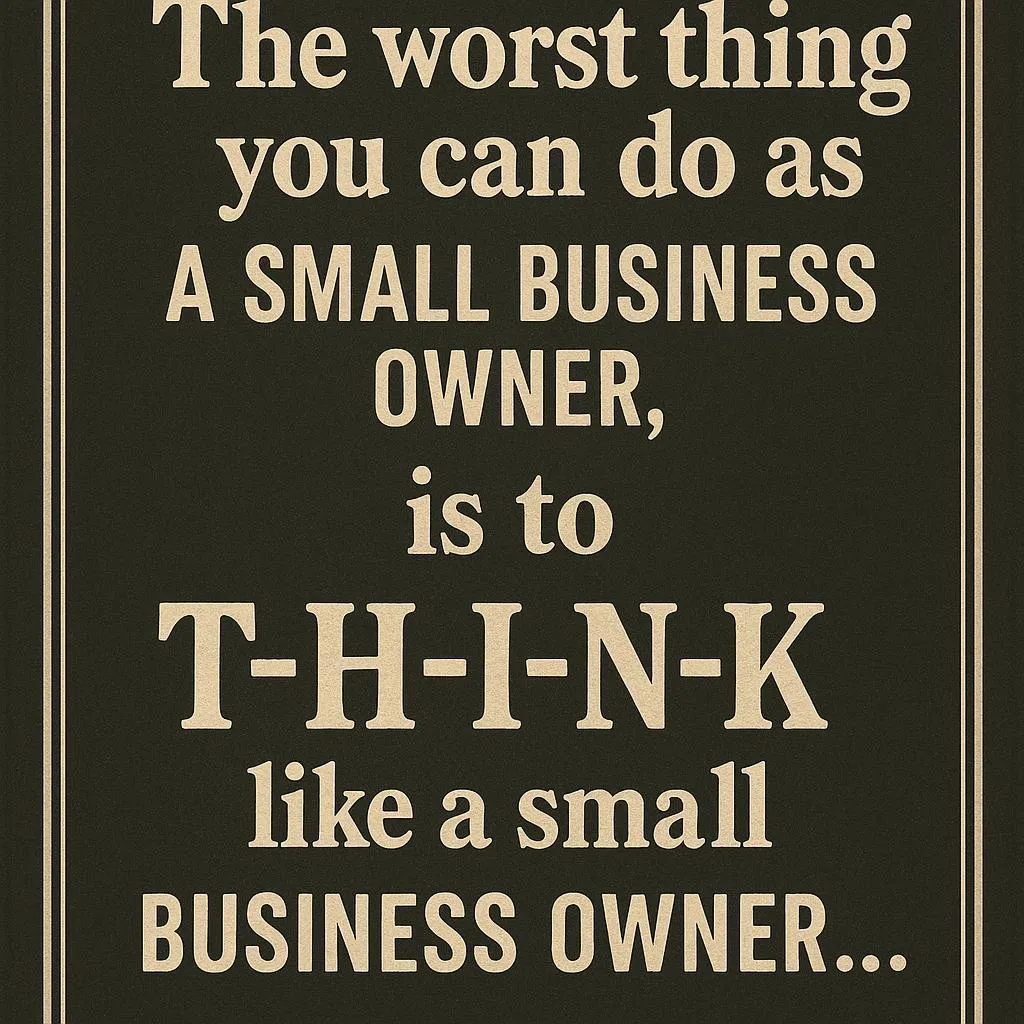
Risks of thinking small
The Risks of Thinking Small as a Small Business Owner
Thinking small as a business owner can stifle growth, limit innovation, and increase vulnerability to market shifts. Experts warn that underestimating your potential can be more dangerous than overreaching.
Here’s a breakdown of the key risks associated with “thinking small,” backed by insights from business lecturers, professional speakers, and recent research.
1. Missed Growth Opportunities
Small thinking often leads to conservative decision-making, which can prevent businesses from pursuing scalable opportunities like new markets, product lines, or strategic partnerships. Forbes Business Council members note that failing to take calculated risks—such as expanding services or investing in marketing—can result in stagnation and missed revenue.
2. Mental Framing Limits Strategic Vision
Business lecturers emphasize that mindset shapes strategy. When owners view their business as “just a small operation,” they often avoid long-term planning, tech adoption, or branding efforts that could elevate their market position. This mindset can also lead to underinvestment in leadership development and systems that support growth.
3. Overreliance on Key Individuals
According to ISOwise, key person dependency is a hidden risk in small businesses. Thinking small often means not building redundancy or scalable processes, leaving operations vulnerable if one person exits or burns out.
4. Poor Risk Management
SumUp’s research shows that small businesses frequently overlook strategic and operational risks, especially when they assume their size protects them from major disruptions. Without proactive planning, even minor setbacks—like supply chain issues or regulatory changes—can have outsized impacts.
5. Misguided Imitation of Big Corporations
Cansulta warns that thinking big doesn’t mean copying big business. Small firms that mimic Fortune 500 strategies (e.g., complex hierarchies or expensive tech stacks) often fail because they lack the resources and agility to execute them effectively. Instead, small businesses should think ambitiously but act with lean, tailored strategies.
6. Resistance to Innovation
Small-thinking owners may avoid digital tools, automation, or advisory services, fearing complexity or cost. This resistance can lead to competitive disadvantage, especially as customer expectations evolve.
What Experts Recommend Instead
Adopt a growth mindset: Think in terms of impact, not size.
Invest in scalable systems: Even simple CRM or workflow tools can future-proof operations.
Build redundancy: Cross-train staff and document processes.
Set ambitious but realistic goals: Use advisory support to map out strategic growth.
Sources:
: Forbes Business Council – “The Danger of Thinking Small”
: Harvard Business Review – “Mindset and Strategic Planning in SMEs”
: ISOwise – “Key Person Risk in Small Businesses”
: SumUp – “Small Business Risk Management Report”
: Cansulta – “Why Small Businesses Shouldn’t Copy Big Corporations”
: Entrepreneur – “How Small Thinking Blocks Innovation”